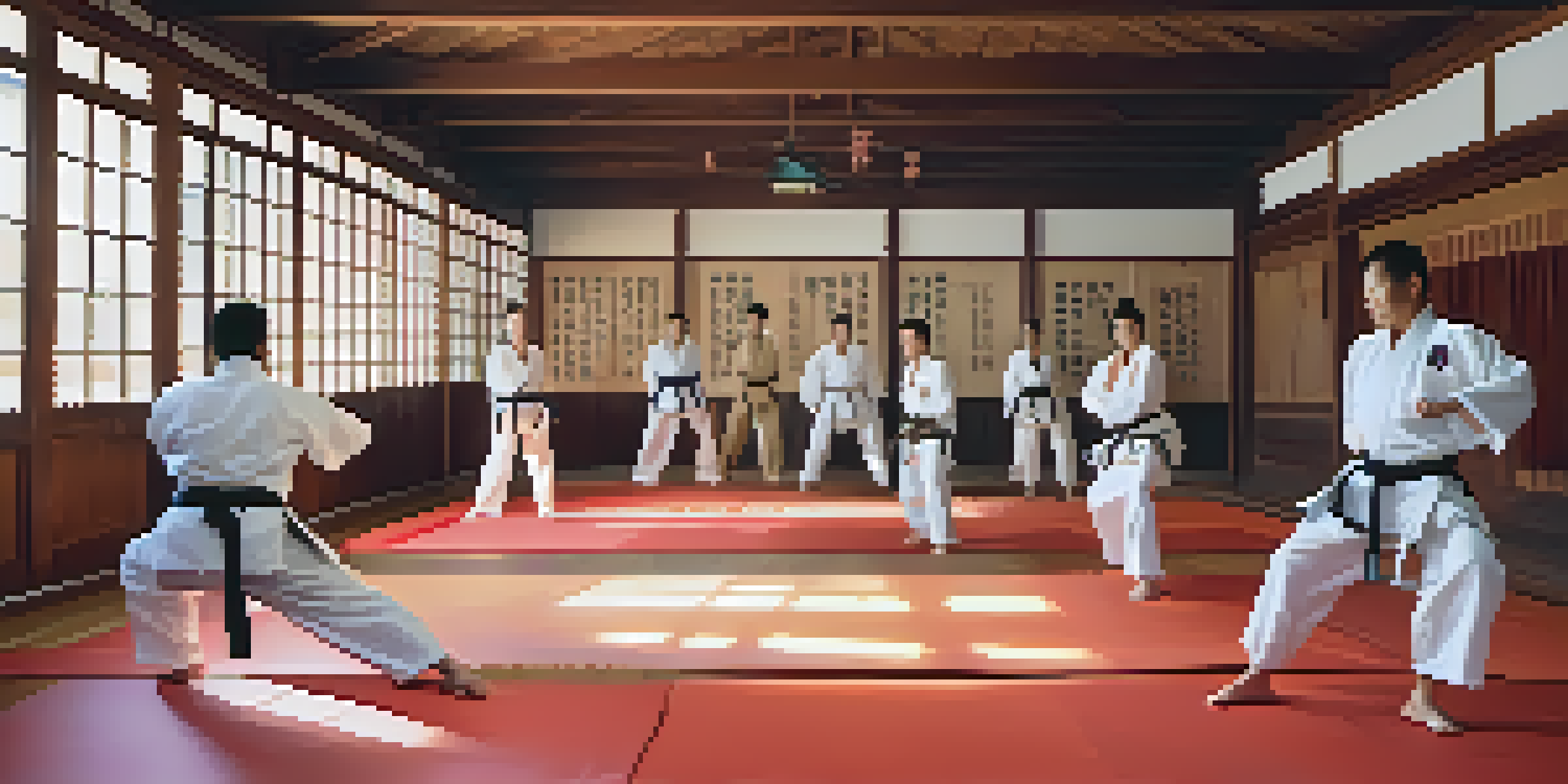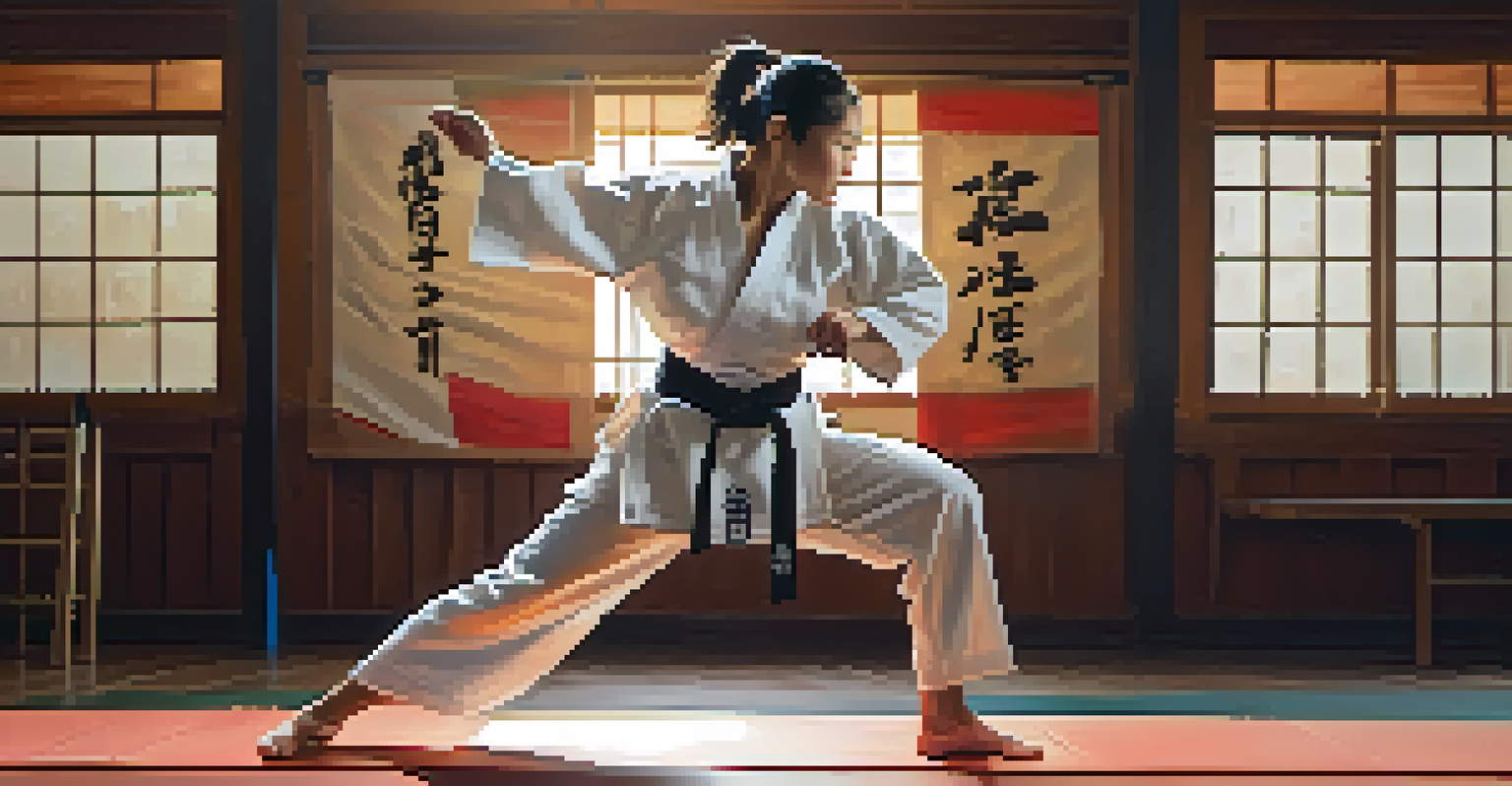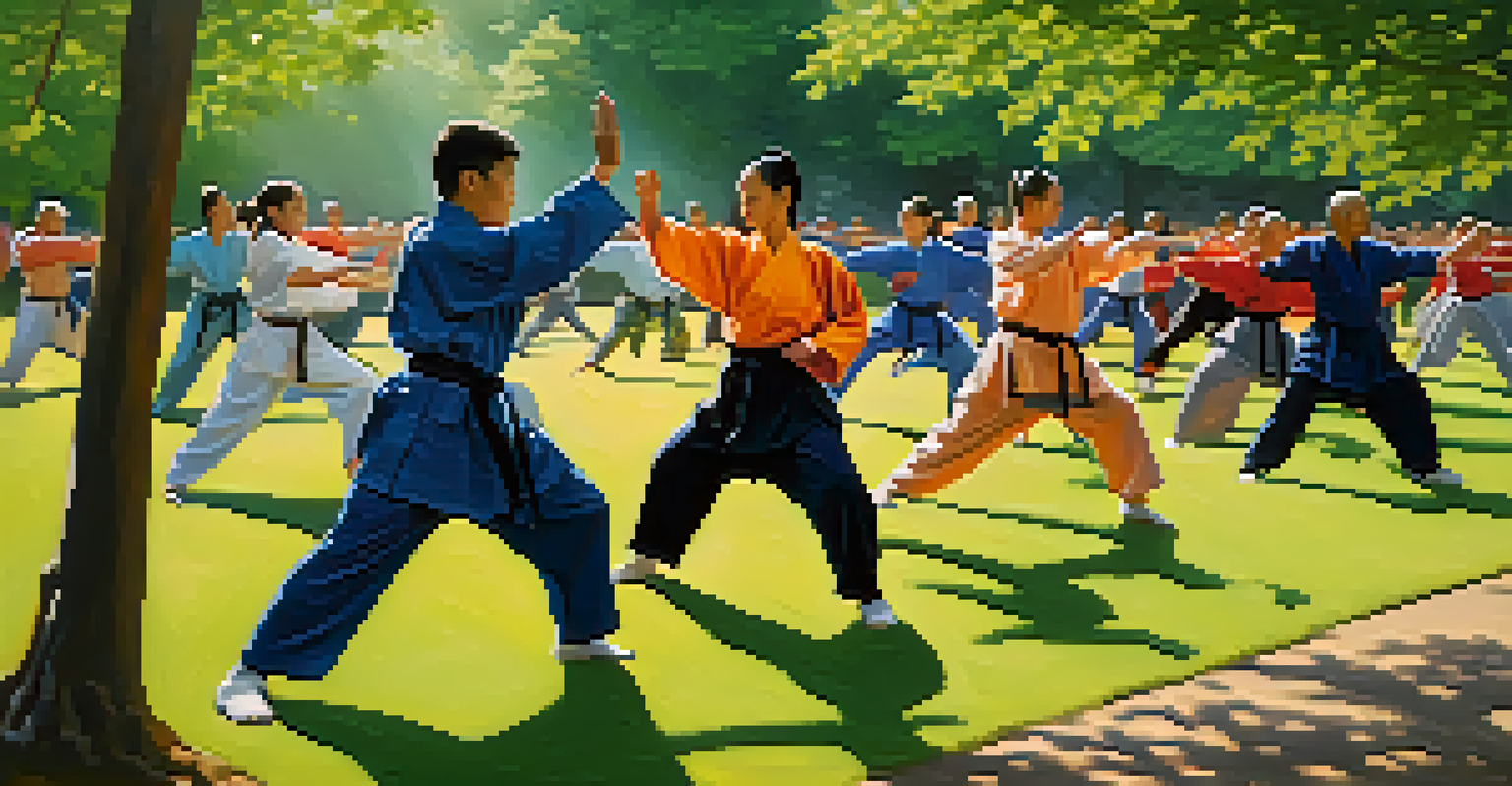Martial Arts as a Tool for Empowering Marginalized Communities

Understanding Empowerment Through Martial Arts
Empowerment is often about gaining confidence and control over one’s life. For many marginalized individuals, martial arts serve as a pathway to self-empowerment. By learning techniques and skills, practitioners not only defend themselves but also build a sense of inner strength.
The greatest weapon against stress is our ability to choose one thought over another.
Martial arts classes teach discipline, respect, and perseverance, which are essential life skills. This structured environment allows students to gain focus and determination, qualities that can translate into real-world challenges. The journey of mastering martial arts becomes a metaphorical representation of overcoming obstacles in life.
Additionally, the community aspect of martial arts fosters a sense of belonging. As individuals train together, they share experiences, support each other, and celebrate victories—big or small. This camaraderie creates a safe space where marginalized voices can be heard and uplifted.
Building Confidence and Self-Esteem
One of the most significant benefits of martial arts is the boost in self-confidence it provides. For many individuals from marginalized communities, societal pressures can lead to feelings of inadequacy. Through consistent training and skill development, they learn to appreciate their own strength and capabilities.

As students progress through different belts or levels, they experience a tangible sense of achievement. This accomplishment not only builds self-esteem but also encourages them to set and pursue other personal goals outside the dojo. It's a reminder that they can succeed, despite the obstacles they may face.
Empowerment Through Martial Arts
Martial arts provide individuals with the skills and confidence needed to take control of their lives and overcome challenges.
Moreover, the physical aspect of martial arts helps in body positivity. By engaging in these activities, individuals learn to appreciate their bodies for their strength and agility, rather than focusing on societal beauty standards. This shift in perspective can be incredibly empowering.
Fostering Leadership Skills
Martial arts training often requires individuals to take on leadership roles, whether by guiding younger students or leading group exercises. This experience cultivates skills such as communication, decision-making, and responsibility. These are invaluable traits that can empower individuals to take charge in various aspects of their lives.
Empowerment is all about giving people the tools and support they need to achieve their goals.
As students advance, they may become mentors, sharing their knowledge and supporting peers. This mentorship creates a ripple effect, where empowerment spreads through the community, encouraging others to step into leadership roles as well. It's a powerful cycle of growth and development.
Additionally, learning to lead in a martial arts setting prepares individuals for leadership opportunities outside of the dojo. Whether in school, work, or social settings, the confidence gained translates into a willingness to voice opinions and advocate for themselves and others.
Creating Safe Spaces for Healing
Martial arts can serve as a therapeutic outlet for individuals who have faced trauma or adversity. The physical activity involved helps release pent-up emotions and stress, allowing for healing and recovery. For marginalized communities, this can be particularly transformative.
The dojo's environment often emphasizes respect and understanding, creating a safe space for individuals to express themselves without judgment. This supportive atmosphere encourages open discussions about personal struggles, fostering a sense of solidarity among practitioners.
Building Community and Belonging
The supportive atmosphere of martial arts fosters camaraderie, allowing marginalized voices to be heard and uplifted.
Through martial arts, individuals can process their experiences in a constructive way. It provides an avenue to channel pain into empowerment, turning negative experiences into a source of strength.
Promoting Cultural Understanding and Unity
Martial arts often originate from specific cultural backgrounds, and practicing these forms can promote cultural understanding and appreciation. For marginalized communities, engaging with these traditions fosters pride in their heritage, while also educating others about their unique histories.
By bringing together diverse groups in martial arts classes, individuals have the opportunity to interact with and learn from one another. This cross-cultural exchange can break down stereotypes and build bridges among different communities. It encourages empathy and understanding in a world that often feels divided.
Ultimately, martial arts can serve as a unifying force, where individuals from different backgrounds come together to share a common goal. This sense of unity can empower communities to stand together against discrimination and inequality.
Encouraging Physical Health and Well-Being
Physical health is a cornerstone of overall empowerment, and martial arts provides a dynamic way to stay active. Regular practice not only improves fitness levels but also enhances mental well-being, which is especially important for marginalized communities often facing health disparities.
The rigorous training involved in martial arts helps build strength, endurance, and flexibility. As individuals become more active, they often experience improvements in their mood and energy levels. This boost in physical health can lead to a more positive outlook on life.
Advocating for Social Change
Through martial arts, individuals are empowered to advocate for social justice and inspire collective action in their communities.
Moreover, martial arts can introduce healthier lifestyle choices, such as better nutrition and self-care practices. By prioritizing their health, individuals feel more empowered to take control of their lives, leading to a holistic sense of well-being.
Advocating for Social Change Through Martial Arts
Martial arts can be a powerful tool for social change, particularly in marginalized communities. By empowering individuals to stand up for themselves and their rights, they can become advocates for broader social issues. This shift can inspire collective action towards justice and equality.
Many martial arts organizations actively engage in community outreach, offering classes at reduced rates or even for free in underserved areas. These initiatives not only provide access to training but also spark conversations about social issues and empowerment. It's about more than just fighting; it's about fighting for a better future.

As individuals gain confidence and skills, they often find their voices in their communities. They may become involved in advocacy, using their experiences to highlight the need for change. This transformative process can ripple out, affecting families and neighborhoods for generations.